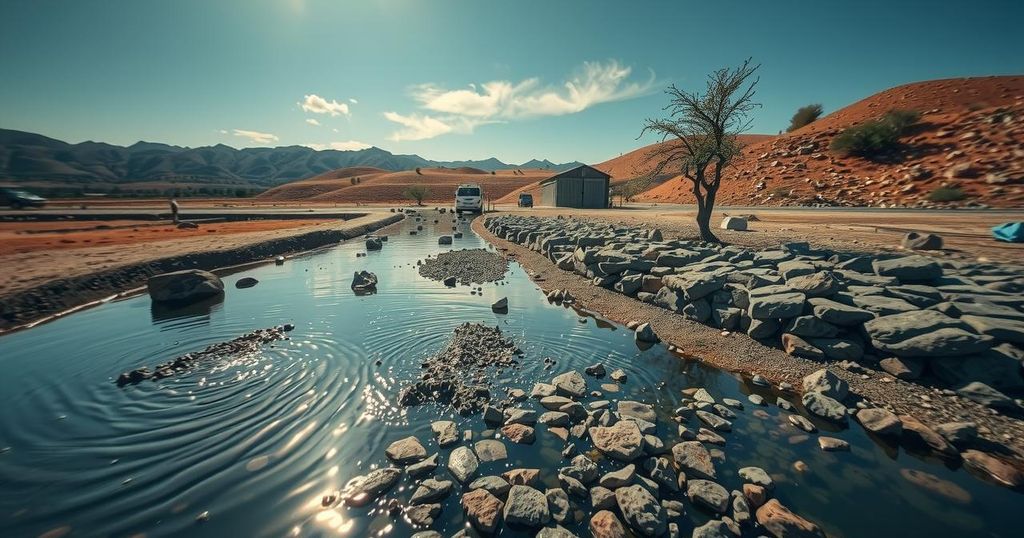Johannesburg residents are enduring severe water shortages as city authorities impose restrictions to manage over-consumption. The situation is critical, with Rand Water warning of impending supply depletion and significant losses due to leaks and illegal connections. Experts point to systemic issues within municipal governance and the projected impact of climate change on future water availability.
In South Africa, particularly in Johannesburg, water shortages have evolved into a pressing issue, evidenced by the experiences of residents such as Joyce Lakela, who runs a nursery in Tembisa. Lakela, like many others, has spent the last five days searching for water due to sudden cutoffs and low pressure from municipal taps. As summer heats up, the strain on the region’s water supply has intensified. The City of Ekurhuleni has implemented daily water restrictions in an attempt to manage what officials describe as over-consumption. However, for citizens, this translates into prolonged periods without access to water, which complicates daily chores such as washing and sanitation. This crisis stems from a combination of excessive water consumption, infrastructure issues, and maintenance interruptions. Even though the country has water reserves, individual experiences diverge from this availability. Rand Water, a key supplier for Gauteng, has cautioned municipalities about high consumption rates and emphasized the urgency of implementing daily water limits to prevent depletion of reserves. Makenosi Marooa, a spokeswoman for Rand Water, reported significant losses due to leaks and illegal water connections, accounting for over 40% of water loss in Gauteng. Experts attribute some of the failures in water management to incompetence within municipal governance and systemic corruption among officials. Municipalities assert that they are constrained by the resources provided by utilities like Rand Water, which is allowed to withdraw only a limited amount approved by the relevant authorities. This ongoing dilemma illustrates the inadequacy of existing infrastructure to support a growing population in Gauteng. As climate change complicates matters further, with projections indicating potential decreases in rainfall of 25 percent by the century’s end, the need for urgent action to address water management is critical. Craig Sheridan, from the University of the Witwatersrand, expressed concern over the potential health repercussions arising from the erratic operation of water systems. The reports from the Global Commission on the Economics of Water underscore the precarious nature of the water supply and highlight the need for significant changes in consumption habits to avert further crises.
The current water shortages in South Africa highlight a broader trend of severe resource management challenges exacerbated by population growth, infrastructural limitations, and climate change. Gauteng, home to over 16 million people, has faced increasing demand for water without corresponding expansions in supply or maintenance of pipes and distribution systems. Past delays in crucial water supply projects and warnings from Rand Water regarding unsustainable consumption practices have precipitated the urgent need for systemic reforms in water management.
In conclusion, South Africa is grappling with a significant water crisis, primarily affecting Johannesburg and its surrounding areas. The combination of infrastructure decay, high consumption rates, and climate change pressures necessitates immediate and comprehensive action. Without significant changes in management and consumer behavior, the country may face increasingly dire water shortages in the future.
Original Source: www.seychellesnewsagency.com






